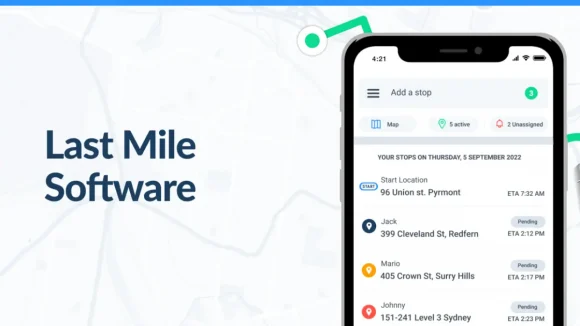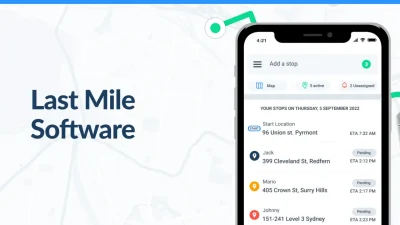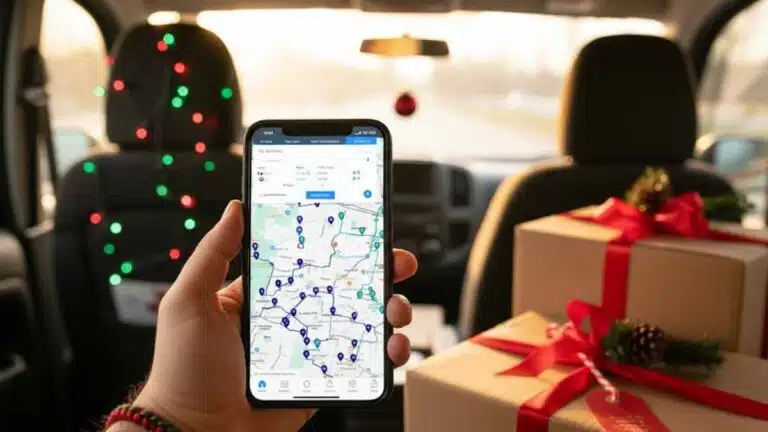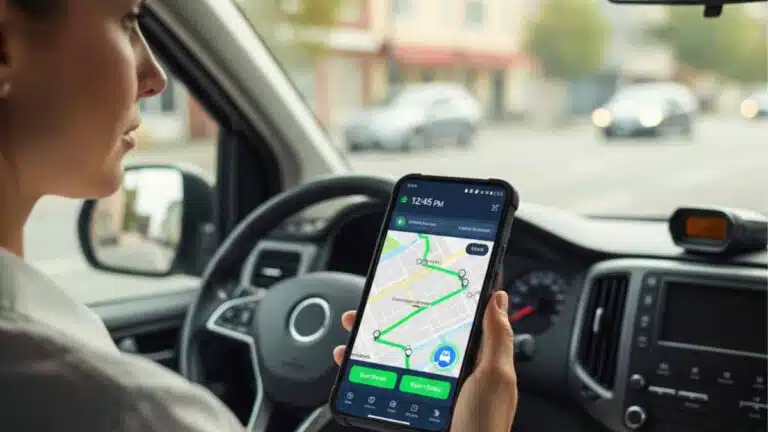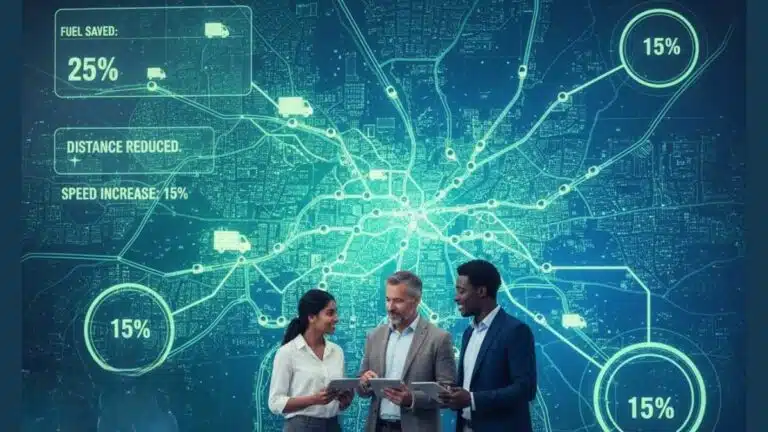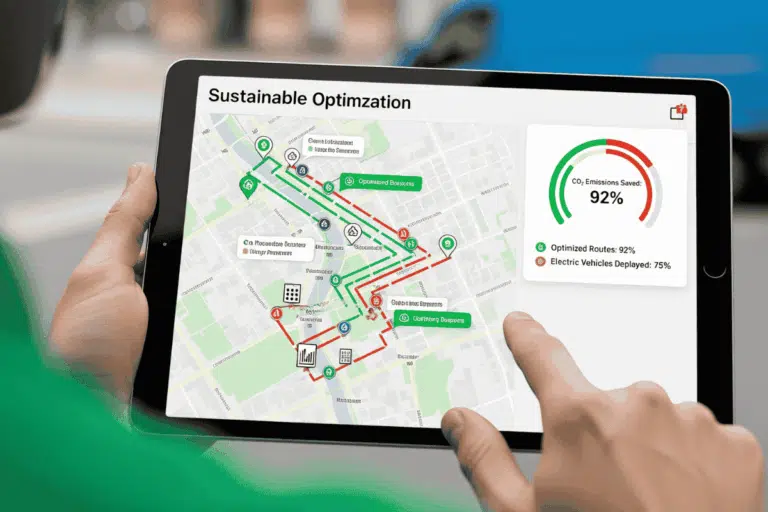Delivery management can be a logistical nightmare if not managed properly. Many businesses unintentionally make costly last-mile delivery mistakes that hurt their operations and customer satisfaction.
Imagine the hassle of managing tens, hundreds or thousands of deliveries but having no way to optimize and plan routes.
Imagine not providing customers with real-time tracking links, despite shopper needs evolving to the point where they want deliveries as fast and as accurately as possible.
Now imagine the logistical nightmare and the damage to your brand’s reputation if you use the wrong last-mile delivery software.
Or worse, not using any optimized software at all!
In this guide, we’ll look at some of the most common pitfalls, and how to avoid them. And going back to the basics, we’ll define what last-mile delivery is.
What Is Last-Mile Delivery?
Last-mile delivery is the final step in the shipping process, where goods are transported from a distribution hub to the customer’s doorstep.
It may sound simple, but it’s far from it.
This stage is often the most time-intensive and costly aspect of logistics. In fact, it accounts for up to 53% of total shipping costs, according to recent data from Statista.
Why Does Last-Mile Delivery Matter?
Beyond last-mile delivery’s impact on supply chains and shipping costs, it’s also vital for keeping your customers happy, informed, and loyal to your brand.
As consumer expectations for same-day and next-day deliveries continue to grow, last-mile delivery is absolutely critical for businesses looking to stay competitive.
The cold, hard truth: Companies that fail to optimize their last mile delivery will risk losing customer trust. And they will incur unnecessary costs.
In fact, a report from Capgemini Research Institute reveals that customers consider accurate last-mile delivery as a “must-have” feature, especially for food and grocery products.
If they see it that way, so should you!
So, without further ado, let’s look at the 12 most common last-mile delivery mistakes some businesses make, and how to avoid them.
Common Last-Mile Delivery Mistakes
Navigating last-mile delivery isn’t easy, and businesses often trip over these easily-preventable mistakes.
1. Poor Route Optimization
Mistake: Businesses fall into the trap of relying on manual planning or outdated systems, leading to broken routes and increased fuel costs.
Solution: Invest in advanced route optimization software that accounts for real-time traffic, weather, and delivery schedules.
2. No Real-Time Tracking
Mistake: Failing to provide customers with live tracking. At best, this will result in frustration and unnecessary calls to customer support.
At worst, you’ll lose clients and money.
Solution: Use GPS-enabled software that offers real-time updates for both customers and your logistics management team.
3. Ignoring Customer Preferences
Mistake: Businesses overlook customers’ preferred delivery times or instructions, resulting in missed deliveries.
Solution: Collect delivery preferences during checkout and incorporate them into your dispatch software.
ALSO READ: Missed packages, unhappy customers? How to avoid holiday delivery chaos
4. Poor Communication with Drivers
Mistake: Limited communication with drivers can result in delays and missed deliveries.
Solution: Equip drivers with tools (and a mobile driver app) for real-time updates and two-way communication.
5. Failure to Anticipate Delivery Volume Spikes
Mistake: Businesses are caught off guard by seasonal demand, leading to delays and overwhelmed drivers.
Solution: Use historical data and predictive analytics to prepare for surges during peak seasons.
6. Skipping Delivery Audits
Mistake: Not reviewing delivery performance leads to recurring errors and inefficiencies.
Solution: Conduct regular audits to identify and resolve bottlenecks.
READ: link to industries that use last mile delivery
7. Overlooking Failed Delivery Metrics
Mistake: Ignoring why deliveries fail means the same issues will keep happening.
Solution: Track failed attempted deliveries and implement solutions like better address validation or SMS reminders.
8. No Contingency Plans for Unexpected Events
Mistake: Businesses don’t have backup plans for emergencies like vehicle breakdowns or weather disruptions.
Solution: Create contingency plans. These should include backup drivers and dynamic rerouting options.
9. Lack of Proof of Delivery (POD)
Mistake: Failing to provide proof of delivery leaves room for disputes and lost items.
Solution: Use POD tools like electronic signatures or photo evidence to ensure accountability.
10. High Driver Turnover
Mistake: Drivers leave due to burnout or lack of incentives, disrupting delivery schedules.
Solution: Offer competitive pay, incentives, and training programs to retain drivers.
11. Skipping Software Integration
Mistake: Businesses use delivery tools that don’t play well with other systems like CRMs or ERPs.
Solution: Choose delivery software with robust API support for seamless integration.
12. Not Leveraging Feedback
Mistake: Ignoring customer feedback. This is a big mistake! It means missing valuable insights into how to improve.
Solution: Collect feedback through surveys or post-delivery reviews and act on it.
Why Businesses Must Address These Last-Mile Delivery Mistakes
Ignoring these challenges not only increases operational costs but also destroys the trust a customer has in your business.
But businesses that proactively address these issues can run more efficiently.
They can also guarantee better customer satisfaction while holding a competitive advantage in the marketplace.
Final Thoughts on Last-Mile Delivery Mistakes
Avoiding last-mile delivery mistakes isn’t just about reducing costs anymore. It’s about building lasting customer relationships.
By leveraging the right technology and delivery software – and by addressing these common pain points – your business can transform its delivery operations into a key strength.
Whether it’s route optimization or real-time tracking, the right approach can make all the difference!
About the author
Cheryl has contributed to various international publications, with a fervor for data and technology. She explores the intersection of emerging tech trends with logistics, focusing on how digital innovations are reshaping industries on a global scale. When she's not dissecting the latest developments in AI-driven innovation and digital solutions, Cheryl can be found gaming, kickboxing, or navigating the novel niches of consumer gadgetry.

